US ban on Russian uranium would boost western industry, says Urenco
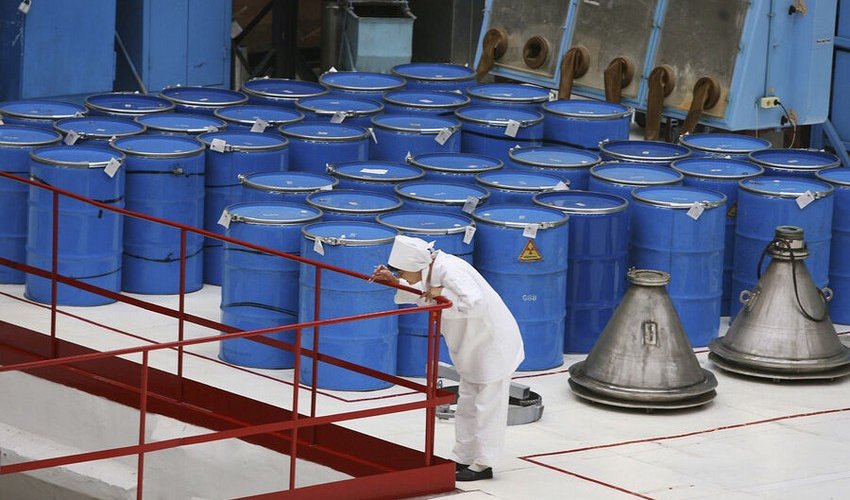
The head of the largest western supplier of enriched uranium used to fuel nuclear plants in the US says it has enough capacity to replace Russian supplies if Washington bans imports from the country, reported from the Financial Times.
Boris Schucht, chief executive of Urenco, said a US bill proposing to ban uranium imports from Russia would boost a multibillion-dollar effort by western nations to strengthen their nuclear supply chains by providing long-term certainty to market participants.
He said Urenco is also talking with the UK and US governments about potential investments in new plants to produce Haleu, a more powerful fuel used in advanced reactors that is currently only sold by Russia’s state-owned nuclear giant Rosatom.
Urenco has been awarded £9.5 million by the UK government to help develop Haleu at its Capenhurst site in Cheshire, as part of a £300 million strategy to "push [Vladimir] Putin out of the global energy market”.
"There are no constraints in the short term in replacing Russian materials in the western world. That is the simple message.”
Russia controls almost 50 percent of global uranium enrichment capacity, a dominant position that has raised energy security concerns in the west following Moscow’s full-scale invasion of Ukraine. The US and crucial allies are now trying to rebuild their nuclear fuel supply chains, which were compromised by a collapse in demand after the Fukushima accident in 2011 caused a leak of radioactive materials.
Rosatom supplies more than a fifth of the enriched uranium fuel used to power the nuclear reactor fleets in the US and Europe. But the US, UK, Japan, France and Canada committed $4.2 billion in December to government-led investments to boost domestic suppliers of uranium enrichment and conversion capacity.
Schucht said demand has surged with western power plant operators trying to secure alternative sources of supply from Russia. Urenco’s order book has grown to $14 billion, up from $12 billion a year ago, he said.
The Biden administration did not initially support banning Russian nuclear fuel following the invasion because the US fleet of 93 nuclear power plants were heavily dependent on the trade. But it is now advocating for a ban following two years of stockpiling by power plants and multibillion-dollar investments in the nuclear supply chain by western companies, including Urenco, France’s Orano and US-based Centrus.
The US nuclear industry expects a ban on Russian imports of enriched uranium to be enacted sometime this year following a bipartisan vote in favour of the measure in the House of Representatives in December.
Timothy Fox, analyst at ClearView Energy Partners, said the Nuclear Energy Institute’s support for a ban suggests there is "now no meaningful risk to the continued operations” of the trade association’s power plant members.
Schucht said the nuclear sector is experiencing momentum not seen for 30 years due to the need to roll out emissions-free power to meet climate goals and safeguard energy security in the wake of the Ukraine war. The development of a new generation of so-called small modular reactors (SMRs), which are more efficient than standard reactors and are powered with Haleu, is also driving the industry, he said.
Russia and China have both designed, built and begun operating SMRs while the US has failed to successfully complete a project.
Schucht said Russia and China are competing aggressively with western nations in the nuclear sector and achieving success in exporting technology and building plants overseas. The private industry in western countries had not fallen behind Moscow or Beijing in terms of designing new technologies but it had lost some capabilities in terms of constructing nuclear power plants, he added.
"[Western nations] had a lot of suppliers in the nuclear sector that went bankrupt in the last 20 years so we lost in the western world certain capabilities and we are already in the process of building them up again,” he said.
Schucht said western companies had for years faced a "very strange competition” from Russia, which had been allowed to sell nuclear fuel below its cost of production while the Russian market remained closed to Urenco and other Rosatom competitors.
"[Western companies] were never allowed to sell any material to Russia, so that’s a very strange situation. And we could see that they were offering products in the western world on price levels, which were below their cost base. The US has well understood that this is not fair competition.”
www.anews.az
Boris Schucht, chief executive of Urenco, said a US bill proposing to ban uranium imports from Russia would boost a multibillion-dollar effort by western nations to strengthen their nuclear supply chains by providing long-term certainty to market participants.
He said Urenco is also talking with the UK and US governments about potential investments in new plants to produce Haleu, a more powerful fuel used in advanced reactors that is currently only sold by Russia’s state-owned nuclear giant Rosatom.
Urenco has been awarded £9.5 million by the UK government to help develop Haleu at its Capenhurst site in Cheshire, as part of a £300 million strategy to "push [Vladimir] Putin out of the global energy market”.
"The market is seeking higher independence and, of course, clear political guidance. So the proposed legislation in the US would be helpful,” said Schucht in an interview.
Russia controls almost 50 percent of global uranium enrichment capacity, a dominant position that has raised energy security concerns in the west following Moscow’s full-scale invasion of Ukraine. The US and crucial allies are now trying to rebuild their nuclear fuel supply chains, which were compromised by a collapse in demand after the Fukushima accident in 2011 caused a leak of radioactive materials.
Rosatom supplies more than a fifth of the enriched uranium fuel used to power the nuclear reactor fleets in the US and Europe. But the US, UK, Japan, France and Canada committed $4.2 billion in December to government-led investments to boost domestic suppliers of uranium enrichment and conversion capacity.
Urenco, whose shareholders are the British and Dutch governments, as well as two German utilities, is at the forefront of these efforts and has agreed to expand three enrichment facilities in the US, UK and the Netherlands.
The Biden administration did not initially support banning Russian nuclear fuel following the invasion because the US fleet of 93 nuclear power plants were heavily dependent on the trade. But it is now advocating for a ban following two years of stockpiling by power plants and multibillion-dollar investments in the nuclear supply chain by western companies, including Urenco, France’s Orano and US-based Centrus.
The US nuclear industry expects a ban on Russian imports of enriched uranium to be enacted sometime this year following a bipartisan vote in favour of the measure in the House of Representatives in December.
Timothy Fox, analyst at ClearView Energy Partners, said the Nuclear Energy Institute’s support for a ban suggests there is "now no meaningful risk to the continued operations” of the trade association’s power plant members.
Schucht said the nuclear sector is experiencing momentum not seen for 30 years due to the need to roll out emissions-free power to meet climate goals and safeguard energy security in the wake of the Ukraine war. The development of a new generation of so-called small modular reactors (SMRs), which are more efficient than standard reactors and are powered with Haleu, is also driving the industry, he said.
Russia and China have both designed, built and begun operating SMRs while the US has failed to successfully complete a project.
Schucht said Russia and China are competing aggressively with western nations in the nuclear sector and achieving success in exporting technology and building plants overseas. The private industry in western countries had not fallen behind Moscow or Beijing in terms of designing new technologies but it had lost some capabilities in terms of constructing nuclear power plants, he added.
"[Western nations] had a lot of suppliers in the nuclear sector that went bankrupt in the last 20 years so we lost in the western world certain capabilities and we are already in the process of building them up again,” he said.
Schucht said western companies had for years faced a "very strange competition” from Russia, which had been allowed to sell nuclear fuel below its cost of production while the Russian market remained closed to Urenco and other Rosatom competitors.
"[Western companies] were never allowed to sell any material to Russia, so that’s a very strange situation. And we could see that they were offering products in the western world on price levels, which were below their cost base. The US has well understood that this is not fair competition.”
www.anews.az
Similar news
Similar news


























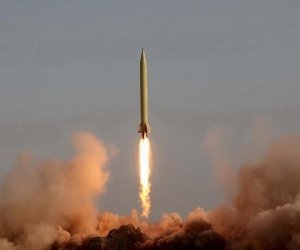
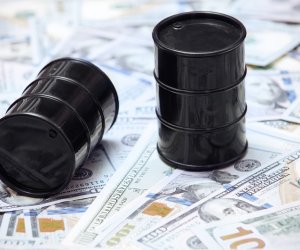
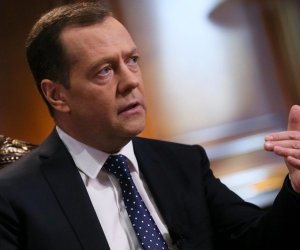
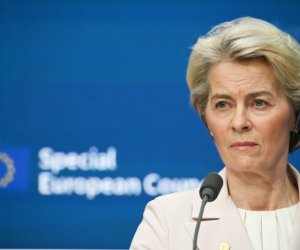

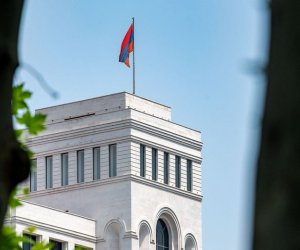
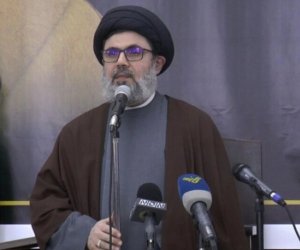



 Photo
Photo 



 Video
Video 

